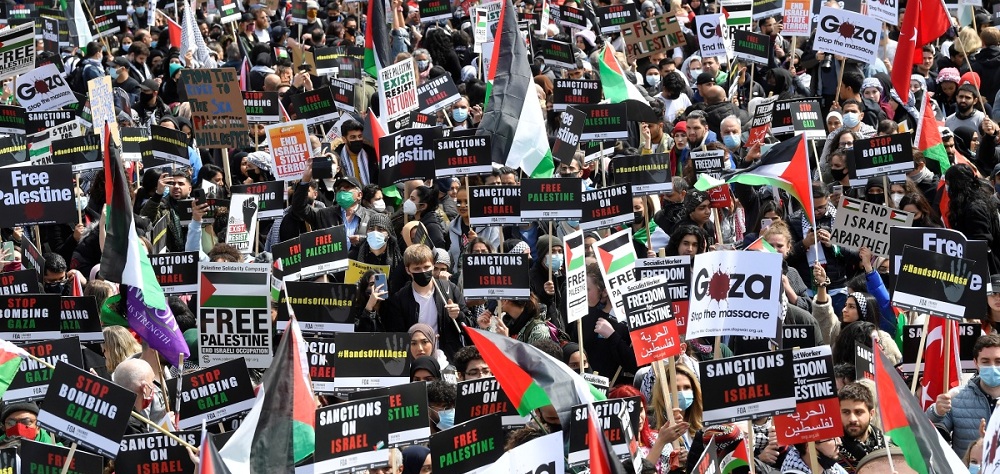Alwaght- The British Home Secretary Priti Patel on Friday announced that London added Palestinian movement Hamas to its terror blacklist and that anybody who supports the movement would break the law and be subject to legal actions including prison sentence for over 10 years. The move drew widespread reactions from a variety of political circles and public. But what are the goals behind it?
Here are some reasons why the British government blacklisted Hamas as a terrorist group:
Silencing voices crying out the oppression against Palestinians: One of the primary goals of the move has to do with a London effort to block the way of support of the rights organizations for the besieged Gaza, especially financial aids raised by campaigns. In fact, with its new decision, London intends to prevent the growing anti-Israeli mass protests in Britain. In recent years, British citizens have unprecedentedly supported the oppressed people of Palestine against the crimes of the Israeli regime and have accompanied Muslims in street demonstrations. The new anti-Hamas move labels any solidarity with the Palestinians against the daily Israeli atrocities a support to terrorism and thus banned.
Deceiving the public opinion amid black record of London in supporting terrorism: Britain has a very black record along with the US when it comes to support for terrorism. British media and others multiple times published documents and reports disclosing London support for terrorist groups in parts of the world. With a dual-faced policy, the British government on the one hand supports horrible Israeli crimes against the Palestinians and on the other hand poses as a human rights advocate. London now intends to justify its political, military, and financial support for the Israeli crimes by calling Hamas a terrorist group. The core goal is to shift the blame and close eyes to the reality in an attempt to shrug off the rights criticism and fool the public opinion about Palestine realities and the apartheidistic nature of the Israeli regime.
Election-related decision to gain pro-Israeli lobbies' patronage: Also, there are some election-related motivations for the decision by the Conservative Party-led government. The remarks by the Patel are obviously influenced by a will to get the Zionist lobbies' support in Britain for replacement of the current Prime Minister Borris Johnson who is unwilling to retain the post after election.
In justification, Patel claimed that Hamas' designation as a terrorist group was a vital step in protecting the Jewish community. She added that the Jewish people feel regular insecurity, to an extent that they hold they religious ceremonies virtually and at home.
The move drew welcome from the Israeli Prime Minister Naftali Bennett and Defense Minister Benny Gantz. The welcome from Israeli officials sends a message of happiness with the British conservatives. Very likely, Tel Aviv will throw all its weight behind the party in the next elections.
Seeking to cover up regional defeats: An old policy always adopted by the Western powers to cover up the regressive failures in their regional and international policies is claim of fight against terrorism and advocacy to human rights. Instrumentalizing terrorism case, the Western governments have been trying to cover up their big defeats in the face of the Axis of Resistance, a powerful regional bloc including Iran, Syria, Iraq, Lebanon, and Yemen. An example is blacklisting Lebanese Hezbollah last year by Britain and some other European states. In pursuing its mysterious policies in West Asia, London has encountered a strong barrier set up by the Axis of Resistance, and in practice it has lost all of its plans it designed for the region after the 2003 invasion of Iraq.
Reactions to the designation
Smart reactions from Arab world made the British move look quite ridiculous. The move met opposing reactions across Arab world. The foreign ministry of the Palestinian Authority in West Bank, for example, in a statement disparaged the hostile step against the resistant movement.
Also, other Palestinian groups, Yemen's Ansarullah movement, and prominent Arab world figures expressed their condemnations. Such massive reactions have a point to tell London: The move has delivered the reverse and the Palestinian movement grows more popular among the Palestinian and Arab world's public.



























